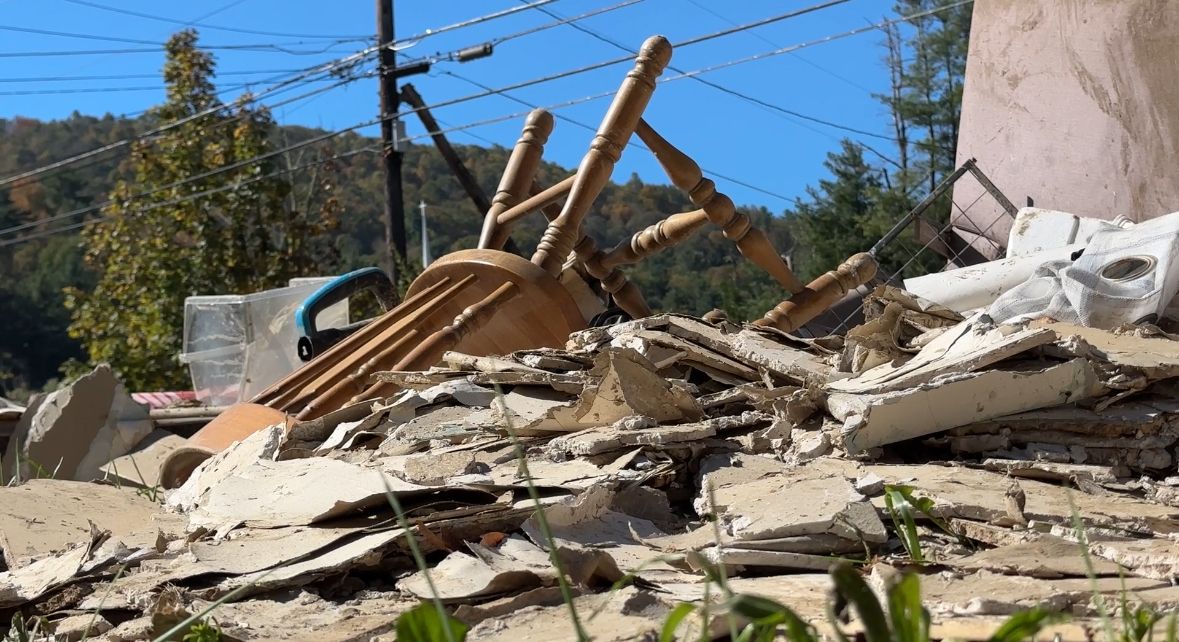CHARLOTTE, N.C. — Western North Carolina is in recovery mode post Helene and those on the front lines are sharing what it was like to answer emergency calls.
Boone Fire Chief Jimmy Isaacs walked us through the most devastated areas. He said calls came in at double the volume when Helene hit. A short time later, the department lost power and became disconnected from those who were seeking help.
In that moment, Isaacs said his staff referred to their trainings and put boots on the ground, despite the damage being more intense than they've dealt with before.
“This was kind of unprecedented from what we had observed in the past. If we look back historically to 1940, the flood that devastated some of the railroad service to western North Carolina, we exceeded what we saw with that," Isaacs said.
“We get fooled sometimes, and this one exceeded what we thought. But now our frame of reference has been reset," Isaacs continued.
Isaacs said that the Boone Fire Department responded however they could, even as some dealt with their own challenges.
“We've got two firefighters [whose] houses were damaged by this tropical storm when they arrived here. We got one chief officer [whose] house was damaged. And, you know, two of the houses are livable. One's not, but it's still damaged. It's got to be fixed. So those people are balancing themselves, their damage, plus trying to help people at the same time.”
It's a task that Isaacs said isn't easy to do.
"We're talking millions and millions of dollars worth of damage just in this community. And then we're magnifying that all over western North Carolina," Isaacs said.
Isaacs said it is the darker side to working as a first responder in such chaos.
"I think the worst thing for most of the responders is after the emergency is done, while the emergency is going, the adrenaline is up, everybody is functioning as one cohesive unit. It's then when you walk away from that, I think that's when most people experience a problem," Isaacs said.
He said Helene was a new challenge for the department, including himself.
“I’ve lived in this community my whole life. I started working for Boone Fire Department in 1988, that can just tell you how old I am," Isaacs said. "But in '88, I started here and as we have seen it evolve, we've seen flooding events. But this one was different. This was we've ... we've always seen these events that it quit raining just as you couldn't do any more. Well, this time it didn't quit raining, just as you couldn't do any more."
Isaacs said as they look to rebuild, Boone holds a special place in his heart.
"I have worked disasters in other states. I worked Hurricane Katrina, I worked Hurricane Rita and several others. And when you look at the devastation that it brings to the community, we, we look at how it affects people. There's memories and pictures and things that people have worked their whole life for that is now gone."
While he said it's hard to see the aftermath of Helene, he believes there's a learning opportunity from the damage.
"I think we're, as we walk away from this, one of the things we need to start doing is looking at not just what went right, what went wrong — what we can do better. Because if we take those lessons learned, it's going to make us a better responder in the future," Isaacs said.



